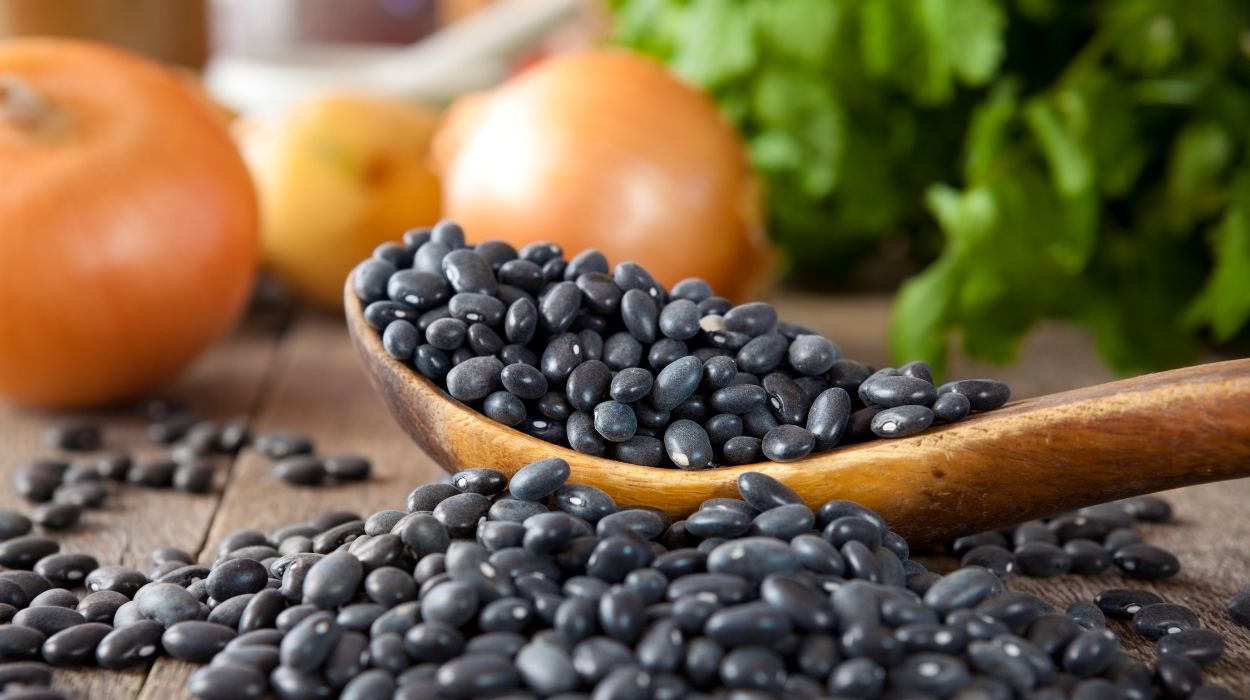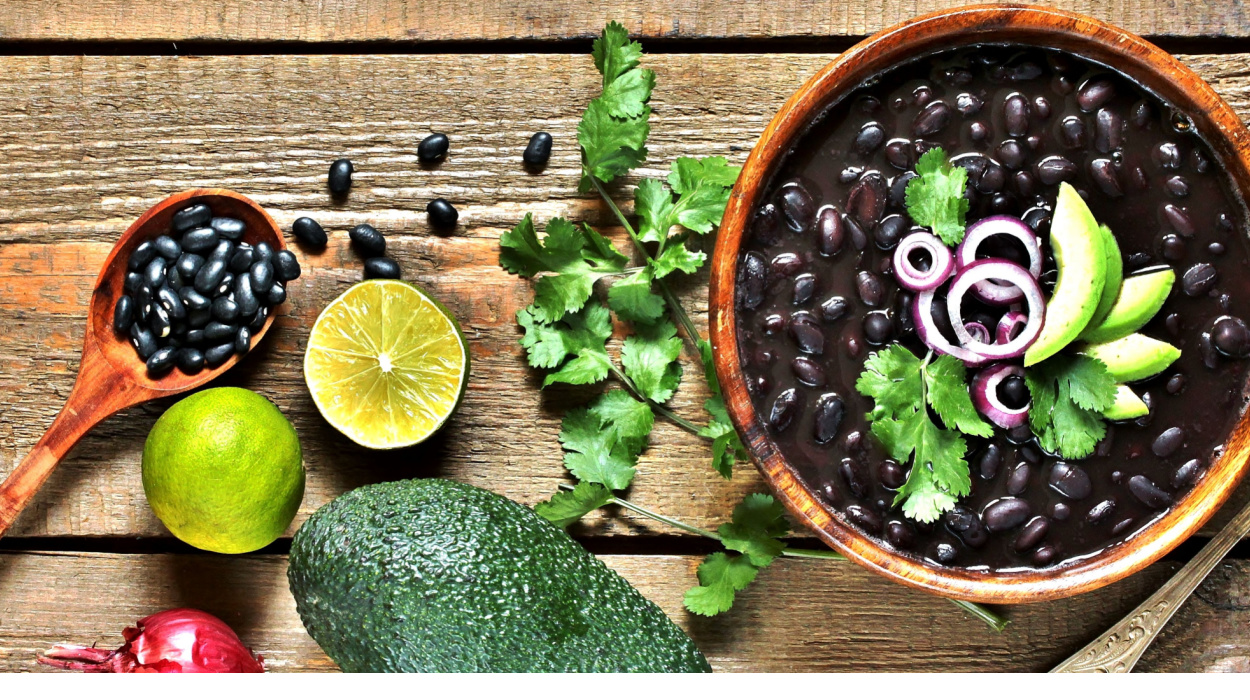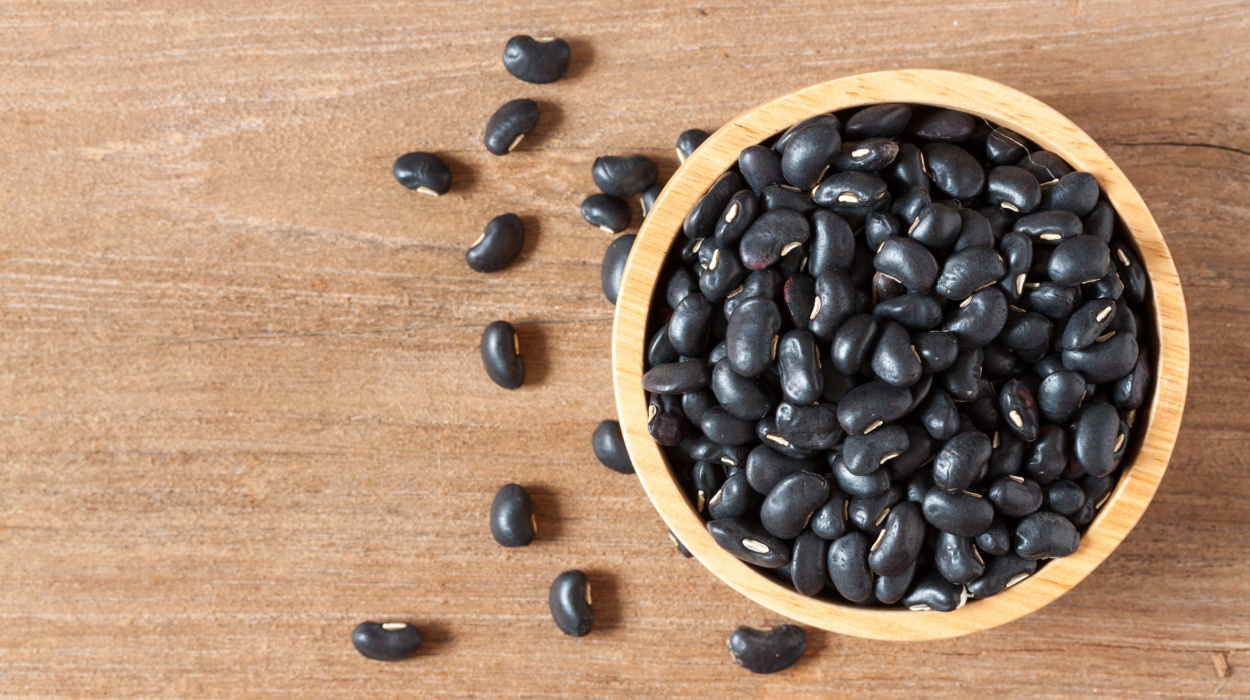Black beans are a great addition to any meal, but did you know they can also help you to lose weight? The high amounts of protein and fiber make black beans an excellent addition to any weight loss journey. Eating black beans can also aid in regulating both blood sugar and energy levels.
Similar to many healthy foods, there are numerous benefits of black beans, but there are potential drawbacks if you overeat them. Find out how to incorporate black beans into a vegetarian diet for weight loss, and other diets.
So, are black beans good for weight loss? Continue reading below to learn the benefits, risks, and ways to include them in your diet for better weight management and an overall healthy life.
Are Black Beans Good For Losing Weight?
Yes, black beans contain a variety of benefits which range from controlled blood sugar levels to reduction inflammation. In addition, black beans also contain vast amounts of vitamins and minerals and also high contents of protein and fiber which will ultimately help you lose weight.
Are Black Beans Good For Weight Loss?

Black beans are great for the body and good for losing weight. They are rich in protein and fiber contributing to satiety. That means they promote a feeling of fullness, which can help to reduce calorie intake, leading to weight loss.
Soluble fiber is a gel-like substance[1] that swells when mixed with water in the digestive system. It’s the main reason you might feel full after eating these legumes since they’re rich in fiber.
In addition, because they are high in fiber, black beans also provide a steady and sustained release of energy promoting satiety.[2]
Overall, beans are low in fat, fiber-rich, and high in essential nutrients which makes them a good food option to help you lose weight and manage other health conditions.
The Nutritional Value Of Black Beans
In addition to weight loss reduction, black beans can help improve overall health. Aiding in lowering blood sugar levels, improving heart and gut health, and helping to combat oxidative stress in the body are just some ways black beans can promote a healthier body.
Protein Source
Black beans are a great source of plant-based protein.[3] They are rich in essential amino acids and peptides that are needed to produce functional properties such as collagen production.[4]
The amino acid profile of black beans is also similar to that of animal-based proteins, such as chicken, beef, and pork. Furthermore, they are also more easily digestible and absorbed in the body than their animal counterparts making them a great option for a weight loss diet.
Aids In Heart Health
Because of low amounts of saturated fats, research shows that black bean consumption has been linked to lower risks of cardiovascular disease[5] and other risk factors such as high blood pressure, high cholesterol, and high blood sugar levels.
Contains Antioxidants
Black beans are great sources of antioxidants that work hard to overcome the effects of inflammation.[6] Inflammation is mainly caused by oxidative stress[7] which builds over time and contributes to conditions such as heart disease and diabetes. However, black beans help to reduce inflammation thanks to their high amounts of antioxidants.
Decreasing inflammation can help to lower a variety of conditions. It can help with lowering blood glucose levels. Increased inflammation is associated with increased lipid levels and therefore increased cardiovascular risk.[8]
Rich In Vitamins And Minerals
In addition to being rich in antioxidants,[9] black beans contain more Vitamin E than any other legume. Black beans also contain potassium, copper, phosphorus, manganese, iron, magnesium, and B vitamins. All are important for strengthening the immune system and improving digestive health.
Aids In Gut Health
Black beans have been suggested to improve gut health[10] because they contain resistant starch. Resistant starch can pass through the small intestine and go through the colon without being broken down and then become fermented by intestinal bacteria.
These gut microbes produce various substances such as methane, carbon dioxide, and even short-chain fatty acids which are used to help maintain balance within the digestive tract.
Helps To Regulate Blood Sugar
One of the most important and notable benefits of consuming black beans is their ability to aid in lowering blood sugar levels.[9] These legumes contain low glycemic index properties, which means they reduce blood sugar and insulin spikes and lead to more sustained energy and less fatigue.
How To Eat Black Beans For Weight Loss

Incorporating black beans and other legumes into the diet[10] is both a delicacy and a staple in many different cultures. Black beans are the main ingredient in many different Latin American cuisines and Caribbean foods as well. These beans are great plant-based foods that can be entwined into a healthy diet to both lose weight and sustain a hearty lifestyle.
One cup of black beans, once rinsed off to eliminate excess sodium, can be used in simple recipes such as salads. Many canned manufactured beans also have low-sodium options that can be used in a variety of ways.
Certain recipes, such as black bean soup or black bean burger, can not only provide more nutrients than their regular counterparts but can also add versatility to the flavor of your meals.
It’s crucial to remember that each different type of legume requires various approaches to prepare them to reap the health benefits. Some beans contain toxins called “anti-nutrients” that can cause damage to the body.
Potential Drawbacks And Precautions
While black beans offer numerous benefits and can add versatility to meals, it’s essential to understand the potential risks of consuming too much. There are some precautions to consider before fully incorporating black beans into your diet.
Flatulence And Digestive Discomfort
Black beans are good for digestive tract health and are important to the flourishing of gut bacteria due to their high fiber content. However, consuming too much fiber can result in flatulence and stomach discomfort including pain and cramping.
Gradually increasing fiber intake allows for your digestive system to adjust. Although consuming fiber is recommended for those with irritable bowel syndrome[11] and other gastrointestinal issues it’s important to monitor the amount consumed as it can worsen abdominal cramping and discomfort.
Research how much fiber per day you may need to consume as it varies per individual needs.
Allergies
Just like other food items, people can also become allergic to legumes. Seek medical attention if you are experiencing hives, itching, or difficulty breathing.
Sodium Content
Some black beans, especially if contained in a can, may contain added salt. Either purchase canned beans that contain low sodium or wash them before preparing.
Weight Loss Considerations
Although black beans are good for weight management and overall health, remember that a single serving can contain high amounts of calories. Consuming excess portions can hinder weight loss progress.
Blood Sugar Considerations
Although low in glycemic index and rich in fiber and protein, people with diabetes should still monitor their sugar levels when eating legumes. Black beans still contain high amounts of carbohydrates and these levels can vary with each individual.
If you notice a spike in glucose levels after meals containing black beans, you should lower the intake or abstain from consuming them. Always consult with your healthcare provider if you have questions or concerns.
Anti-Nutrient
Black beans have immense amounts of nutrients that are beneficial for the body, however, they also contain small amounts of “anti-nutrients”[12] such as lectins, phytoestrogens, phytanes, and tannins that can have detrimental effects on your health.
These chemicals can stop the absorption of key vitamins and minerals, cause altered gut function and inflammation, and can increase the risk of certain cancers as well. However, these effects can be lessened by soaking beans before preparing and eating cooked black beans.
Conclusion
From taking the best fat burners to weight loss supplements, nothing gets you to a healthy weight better than consuming a healthy diet and implementing daily physical activity. Many of the best diets for weight loss list black beans and other legumes as items to eat.
The rich protein and fiber content, immense amount of vitamins and minerals, and the variety of recipes that can be used with these beans make them a fan favorite in any type of diet. Black beans are also one of the most high-fiber foods you can consume for weight loss.
Consuming in moderation, proper preparation methods, and attention to individual needs are needed to reap the benefits of black beans while minimizing any potential adverse effects. Consuming black beans is a great way to start eating healthy and living a better lifestyle.
Frequently Asked Questions
Black beans alone do not contribute to a reduction of body fat but their high fiber and protein content can contribute to overall satiety which aids in weight management.
Just like any other food, remembering everything in moderation is important as eating too many black beans every day can lead to abdominal pain and discomfort especially if consumed in high amounts.
Black beans contain complex carbohydrates which are considered good because they help sustain energy, support digestive health, and contribute to satiety. They also help with reducing inflammation and improving insulin sensitivity.
Black beans are moderate in calories. About one hundred grams of beans is 132 calories.[13] They are not extremely low in calories but they are very nutrient dense which makes them a valuable component of a well-rounded and health-conscious diet.
 Evidence Based
Evidence Based


